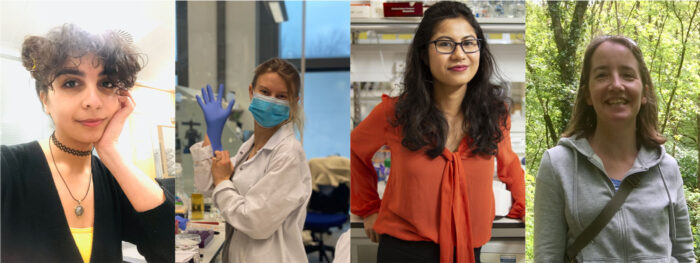
For the International Day of Women and Girls in Science, we’ve asked a few of our researchers to tell us how and why they ended up in science.
“I always found the stories of scientists and their discoveries most captivating”
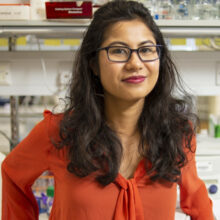
I grew up in a remote Assamese village in India, being very close to nature. Growing up, our village had no electricity which meant the only window to the outside world was through books and the daily newspaper (which ironically used to arrive the next day). I always found the stories of scientists and their discoveries most captivating among all the books that mother bought us and would often fantasize about being a scientist while reading these stories.
I never thought I could ever become a scientist because I had never heard/read about a scientist from a similar background or seen one who looked like me. However, things changed when I read a newspaper article about a prominent Indian scientist Dr A P J Abdul Kalam who started from humble beginnings and made many significant contributions to Indian aerospace research. His story inspired me to keep dreaming and to pursue my dream of one day becoming a scientist.
“I love the detective aspect of research”
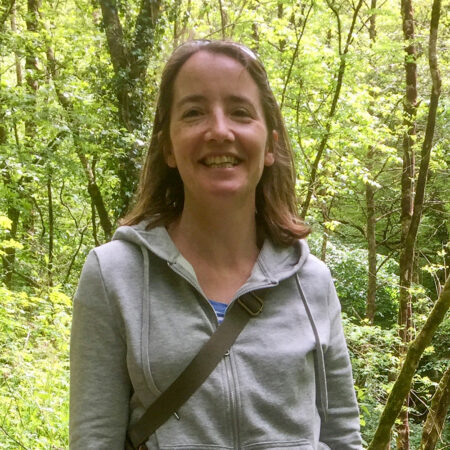
I grew up in rural Somerset, and I was the first person in my family to go to university. I had no idea what a scientist even did when I was at school, let alone that I wanted to be one! So, my career choice was very much a journey of small steps. I chose biology simply because I was fascinated by the tiny details of how our bodies work. I studied at Somerville College, Oxford, a women’s college, full of inspiring, successful women. Most importantly, it was inclusive, a world that I felt part of, and this probably shaped my future more than anything else.
A lab project opened my eyes to the life of a research scientist and started my fascination with genetics. This led to a PhD at Warwick, where I got interested in biochemistry, a postdoc in Marseille, where I moved into neuroscience, and then Cambridge, where I discovered the beauty of C. elegans. This tiny worm allows us to study neurons in a living, behaving, animal. Years later, I still love the detective aspect of research: gathering clues from different types of experiments – genetics, biochemistry, neuroscience and behaviour – to build a better picture of how our amazing brains actually work.
“Curiosity, challenge and excitement”
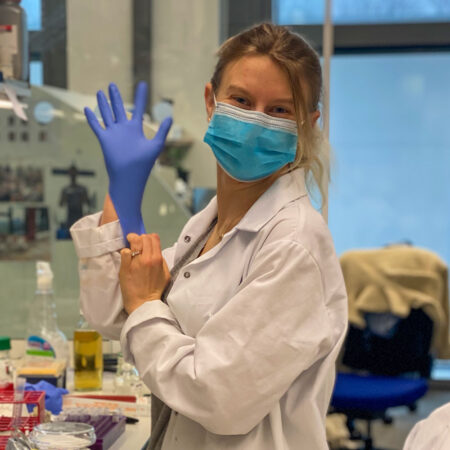
It is difficult to say why one became a scientist. It’s a combination of opportunity, ambition but most of all, curiosity. One reason I became a scientist would have to be due to my upbringing. I was brought up in a very scientific oriented environment in Belgium where my parents and my friends’ parents were all scientists, at universities and the local nuclear research centre. My father would often talk about his PhD days in basement laboratories, shooting protons at paintings in the Louvre in Paris to uncover an artist’s strokes, and measuring Cs-137 isotopes in Sweden which unveiled the Chernobyl explosion.
Each question can be approached and answered in many different ways. When I asked myself why I became a scientist, I initially thought “I do not know”. This is a common answer for scientific questions as well. But now, being a scientist, I do know: it is the curiosity, challenge and excitement. There is a moment when you see a result and there is no one else in the world who has that knowledge. Honestly, it doesn’t get any better than that.
“If I had missed the 8 pm news about Dolly the sheep, I might have followed the path to medical school!”
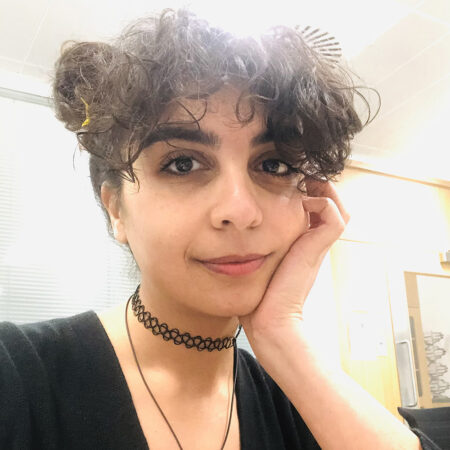
I was around 11 years old when I first heard about “Dolly the sheep”, the first mammal cloned from adult somatic cells. I was so fascinated by the whole field and I said to myself that I want to be a geneticist and do the same! My passion for molecular biology grew over the years and I ended up studying cell and molecular biology for my undergraduate degree. I then embarked on an adventure to continue my education and passion for research in the UK, a country with lots of opportunities in the biomedical field.
After 4 years of sweat and tears I got my PhD degree and secured a postdoctoral position at the LMB, the home of the DNA structure, DNA sequencing and several Nobel laureates. Currently, as a senior postdoc, I am investigating ageing and age-related diseases at the molecular level using different systems and I know that I would never be happy in any other career path. Looking back to over 2 decades ago, I did not end up cloning mammals, but I do cloning routinely. If I had missed the 8 pm news about Dolly, I might have followed the path to medical school. Do I ever regret my choice? NEVER!
Women are an integral part of the success of the LMB and have been for many years. The LMB recently commissioned science writer and LMB alumna, Kathy Weston, to write a series of articles about the many inspiring women who have contributed, or are contributing, to the work and success of the LMB, and science in general. The female students and postdocs currently at the LMB are training to be the next generation of science leaders and it is hoped will continue to inspire girls and others to consider a career in science.
Further references
Women at the LMB
Ahead of the Curve: Women Scientists at the MRC Laboratory of Molecular Biology by Kathy Weston